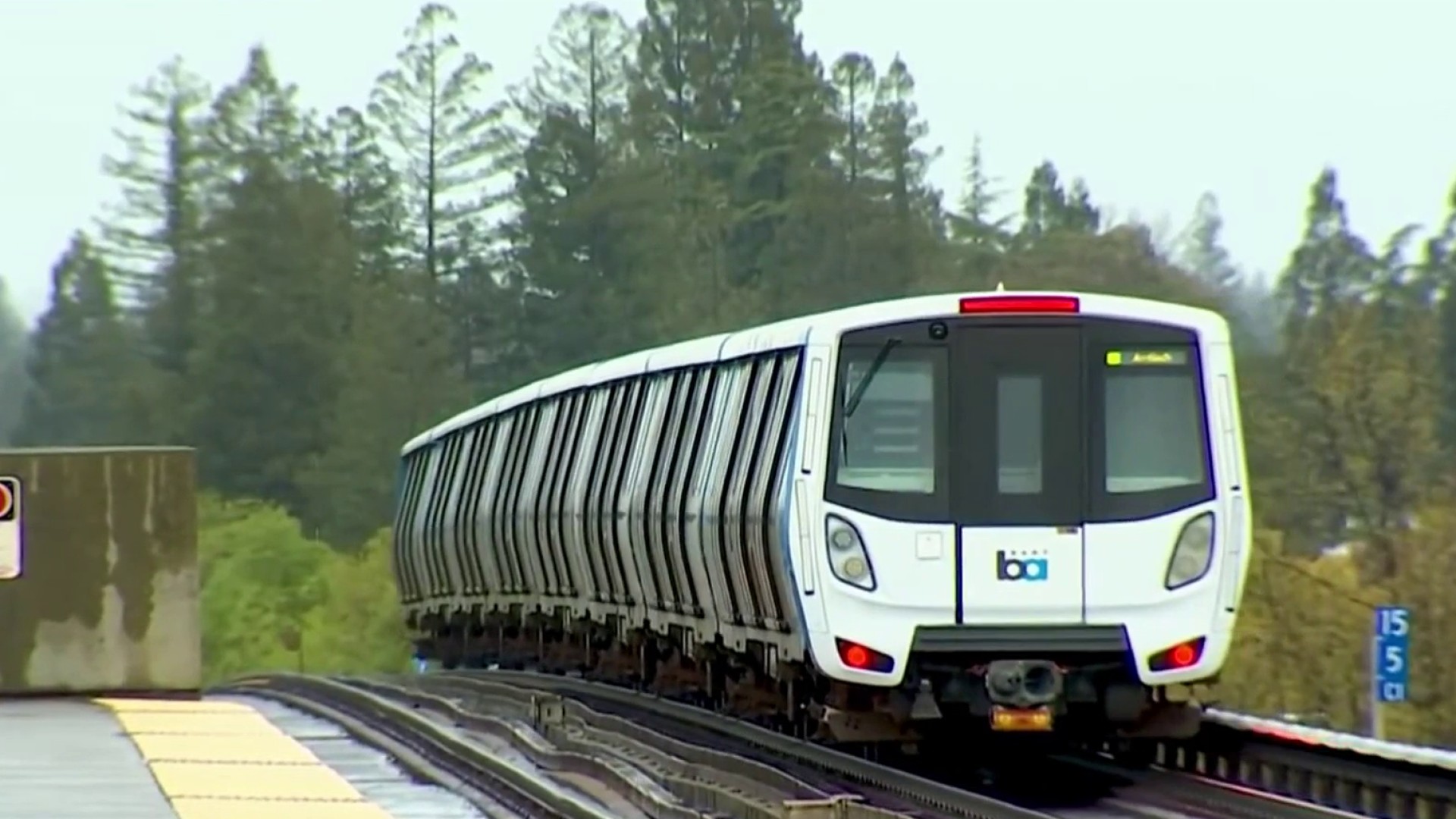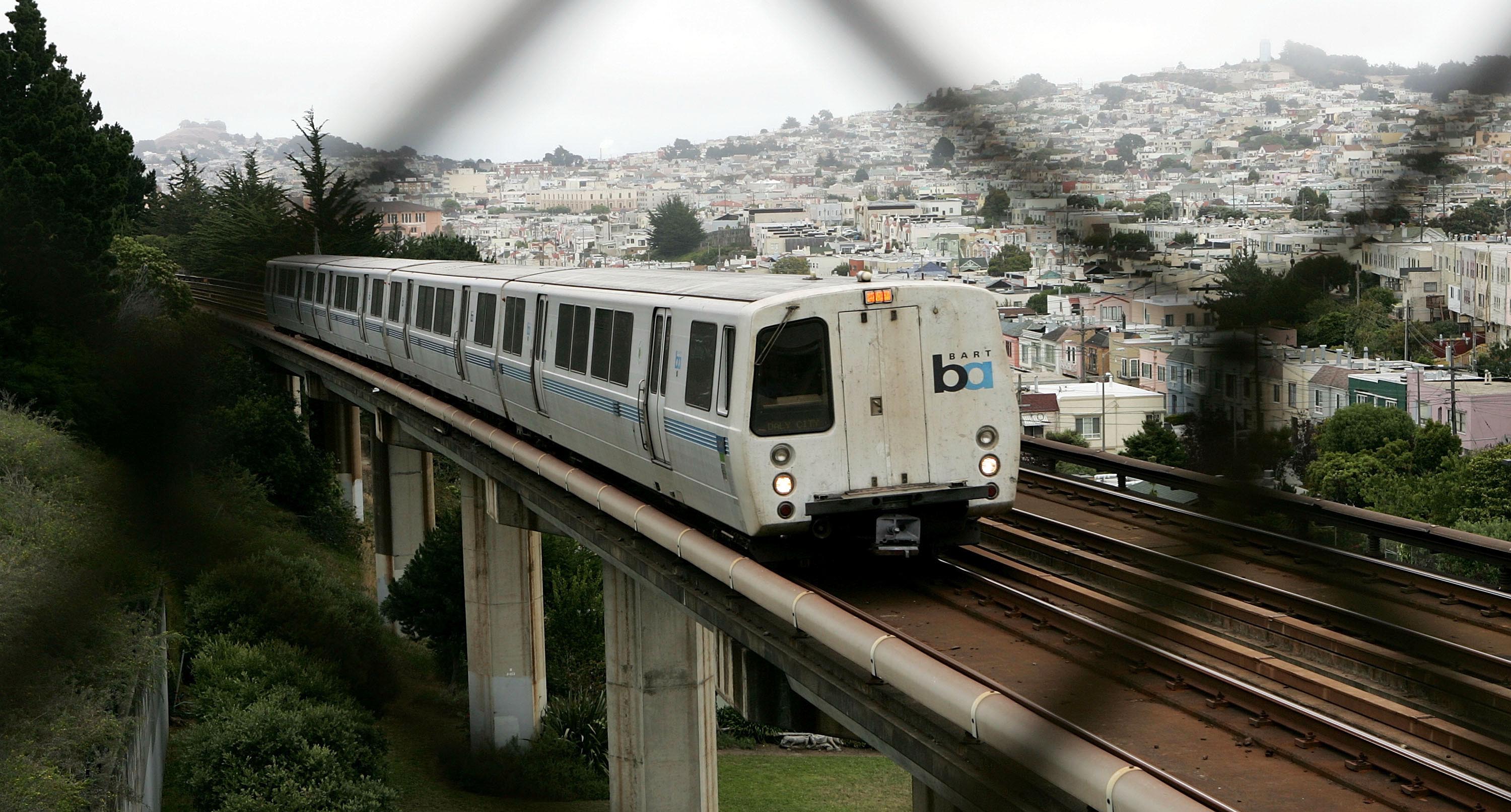BART’s new Fleet of the Future continues to be hobbled by wet weather braking issues despite this year’s comparatively mild weather conditions, with one recent storm sending five entire trains in for wheel resurfacing due to unexpected braking.
“It’s gotten better,” said East Bay BART rider Robert Freeman outside the Walnut Creek station on a recent soggy day. “But, like, when it's hot, there are delays, it's cold, there are delays, rain, there’s delays.”
Although he’s seen improvement this year, Freeman says he’s still recovering from last year, when BART all but melted down in heavy rains. Chronic wet conditions led to dozens of cancelled trains, leaving riders crammed into shorter trains running at half speed as engineers scrambled to deal with weather-related wheel flats.
“My understanding is that we have we're doing better this year with respect to delays due to that braking system,” noted BART board member Debora Allen, but she added: “We are still having flat wheels.”
Get a weekly recap of the latest San Francisco Bay Area housing news. Sign up for NBC Bay Area’s Housing Deconstructed newsletter.
She noted that despite slower speeds, in one recent storm five trains ended up with mass wheel flats on the A-Line between Lake Merritt and Fremont stations.
BART officials say the issue occurs when wet rails cause the wheels on their new fleet of cars to spin or slide. When that lasts more than a few seconds, sensors trigger the automatic emergency braking system, as a safety precaution.
But in the process, the brakes “lock up” the wheels and wear flat spots on all of them at once. That means trains must go in for maintenance to grind down those spots and “true up” all the wheels. As a stopgap, BART has slowed down its trains system-wide when it rains. Still, since November, BART says a total of 385 cars have sustained wheel flats.
BART says the labor cost to repair the damaged wheels on a ten car train amounts to $7,280. But in an internal email obtained under the Public Records Act, BART fleet superintendent Michael Hung said the total cost to fix the wheels on a ten-car train is approximately $82,320.
That larger estimate would mean the bill to resurface the wheels on all 385 cars would exceed $3 million.
Whatever the final cost, for now, trains are under the existing or an extended conditional brake warranty.
“When the warranty is up, that is the point when BART starts absorbing the costs of the truing of the wheels,” Allen said.
How long the warranty extension will continue isn’t clear, but BART documents indicate the original 2-year warranty will be up for its entire new fleet by 2028.
In the meantime, BART officials are now looking to GPS-tracking technology. The idea is to verify train speeds are safe using global positioning and override automatic braking when it’s not necessary.
While the train maker had previously advocated GPS as a promising interim fix, documents BART released under the Public Records Act show its officials rejected that solution less than three years ago. The official in charge of the new fleet told the train contractor back in 2021 that the case for its safety hadn’t been “proven.”
BART nonetheless decided then to accept more trains, assuring California Public Utilities Commission rail regulators in a 2022 memo that slowing speeds had “significantly decreased” flats.
BART refused to make fleet officials available to answer questions about braking and GPS. It said it is exploring a GPS solution with an unspecified vendor.
Board member Allen said she had only learned about BART’s apparent wavering on using GPS to track train speeds from the investigative unit.
“It's frustrating that I, as a director, am learning about all of the decisions that were made back in 2021 to essentially abandon an interim solution.”
With ridership flagging after COVID, BART will have to bank on the patience of riders like Freeman to put up with the weather-related headaches. Freeman says he is willing to do just that.
“I'll take the delay,” he said, “because, I mean that commuting from here to the city in the rain with a lot of people in accidents is way worse than trying to, uh, just deal with some delays.”



